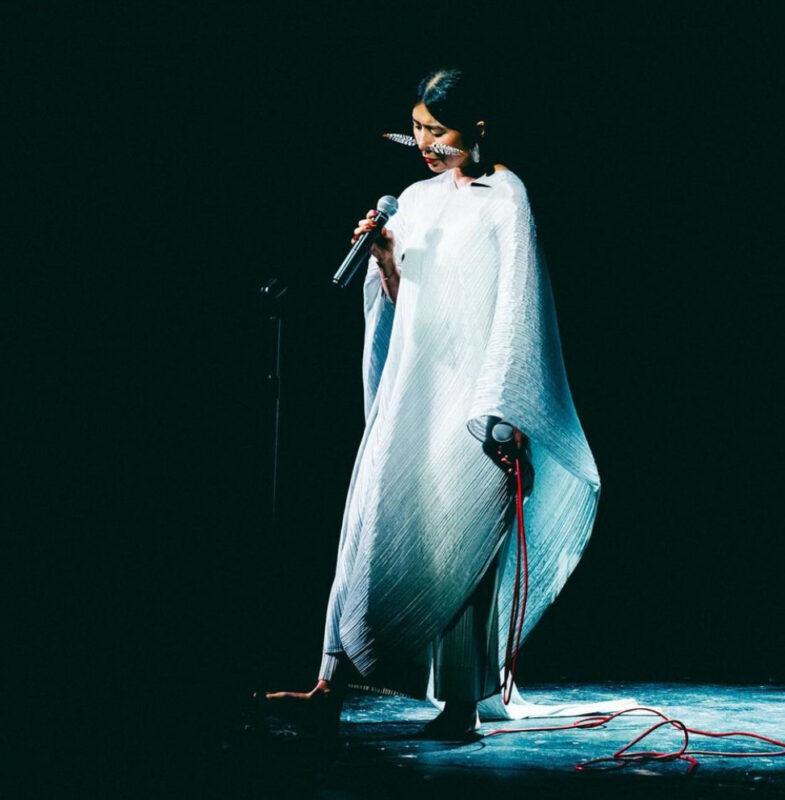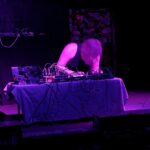When Hatis Noit opened her mouth for the title track, and first song of her album Aura, The Riverside Theater went quiet, like an eerily silent forest in the presence of a powerful being. The crowded, dark room only occasionally rustled with the movement of standing people trying to find any remaining seat. There was a sense of unity with the night sky outside, with the illusion of a place detached from space and time. Save for the applause between each performance, it remained this way until her final goodbye, when the doorway flooded light into the peaceful cave.
Wearing a translucent white gown and intriguing jewelry, with two feathers facing horizontally on both sides of her nose, she resembled a glowing white cross, an angel, or a ghost. The draping fabric moved as gracefully as she did, slowly crossing the stage, moving up and down the stairs between the rows of seats, while she made intimate eye contact with each viewer. After each song though, she would return barefoot to her looping pedal, where she would craft the next one from scratch.

Hatis Noit brings a performance to the Mission Creek Festival that is steeped in her own, rich diverse experiences. These experiences include hearing Gregorian chants, along with the ones of Buddhist monks in Nepal. All these sounds inspired her music which aims to connect the natural aspects of the universe with the spirituality that can be found in humanity. The critically acclaimed Aura is the epitome of this concept, and she shared the experience of crafting these sounds with Iowa City.
She shows the power and versatility of vocals in “Jomon”, looping an intense, heartbeat like burst of air to give a consistent drum sound. Her voice is full and strong, making for an invigorating sound throughout. The transition to “Angelus Novus”, however, brought the audience to an entirely timeless holy place, with those sounds reminiscent of Gregorian chants, whispers of prayers, and the humming of monks.
As she neared the end of her performance, Hatis Noit described the inspiration for “Inori” as the widespread, collective pain from the 2011 Tohoku earthquake and tsunami. In this song, she introduced her recording of the ocean near the Fukushima power plant, the only element of pre-recorded audio throughout the concert, and the only non-vocal sounds. She lamented those lost and those who longed to go back home, before transforming these powerful emotions into ever more powerful vocals. Her closing song, “Sir Etok”, meaning ‘the end of the Earth’, brought a feeling of being lost deep in nature among far stronger forces. Her loud cries, filled with an intense collective emotion, faded into silence, and she smiled to thank the audience.
Following the performance, she stood by her merchandise table to talk to those who wished to speak with her. When asked which song on the album was her favorite, she appeared surprised, as if she had never considered it. Her answer was both the opening and closing tracks of Aura, but it raises the question of what criteria could possibly be used to rank such abstract expressions of deep emotion.




